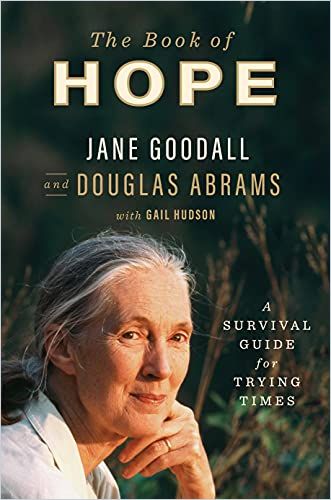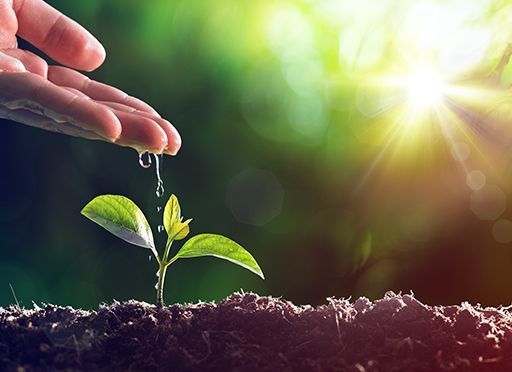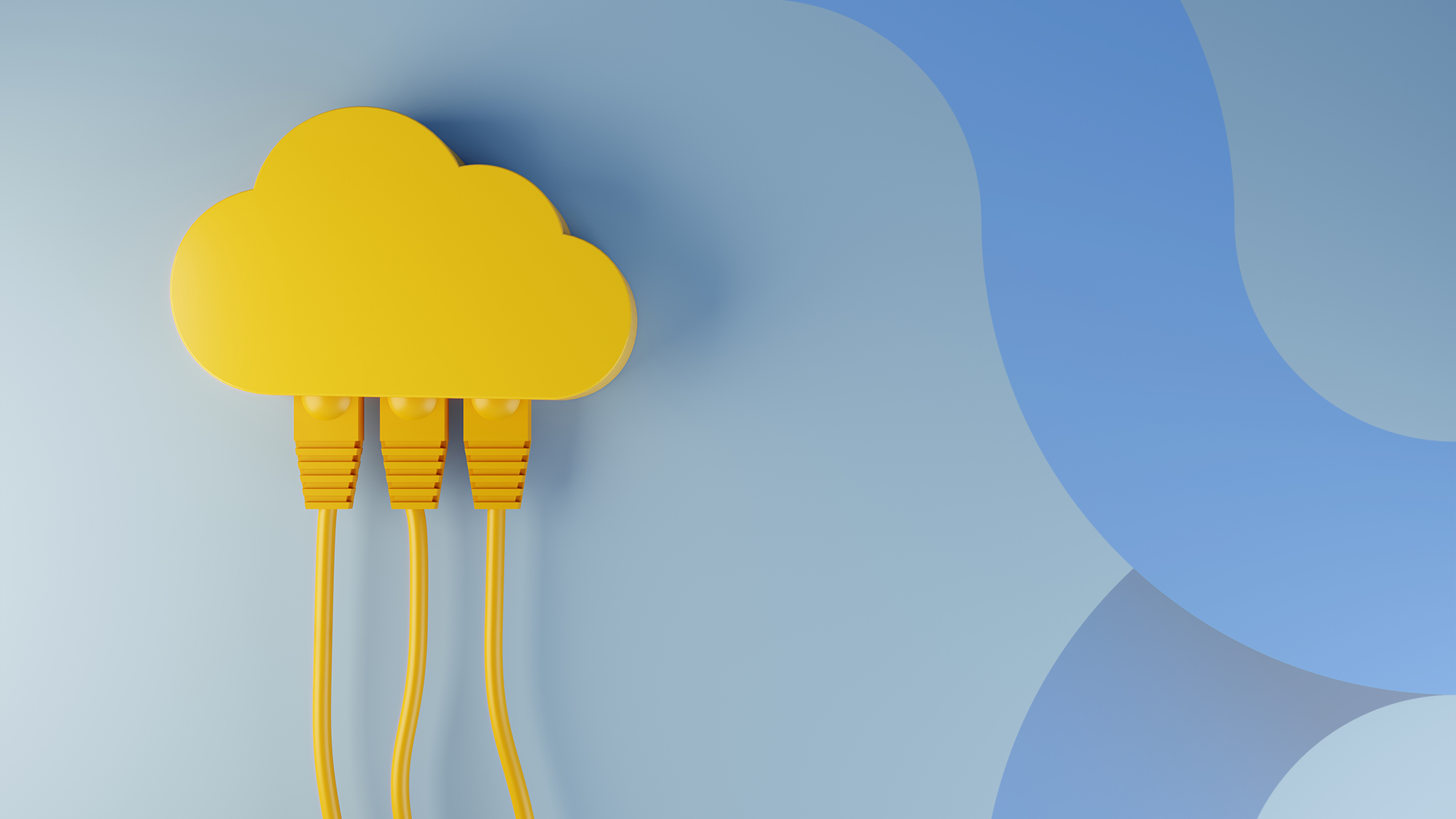Primatologist and environmentalist Dr. Jane Morris Goodall, DBE, and Douglas Abrams – author of The Book of Joy – offer a detailed guide to vesting in and sustaining hope.

Hope Heals
Succumbing to pessimism carries the risk of creating a self-fulfilling prophecy if your negative worldview comes to pass, says revered primatologist and environmentalist Dr. Jane Morris Goodall, DBE, and co-author Douglas Abrams, who wrote The Book of Joy. The authors believe that hope can catalyze action, banish division and darkness, and usher in a brighter, more sustainable future.
Nature’s Resilience
British naturalist Jane Goodall, also an environmental activist, travels the world sharing her message of hope. She defines hope as a survival trait that gives people endurance during hard times. Hope, she says, evokes what you “desire to happen.” But, as she reminds her readers, achieving the outcomes you hope for means working for them.
Goodall’s enduring hope springs from her remarkable life experiences, starting with observing chimpanzees in their native habitat in Tanzania. She sat among the chimps and gave them time to trust her. She became the first person to document an animal making a tool. Goodall felt she was where she belonged, doing exactly what she was supposed to be doing.
Goodall recalls a difficult period when she may have lost hope – when her second husband, Hugo van Lawick, died of cancer. She recounts that other people, dogs and the forest helped her regain hopefulness.
People tend to regard the future in one of three ways: They fantasize about fun things, dwell on bad things or harbor hope by envisioning a future in which they overcome challenges.
Hope [isn’t] just a Pollyanna avoidance of the problems but a way of engaging with them.Jane Goodall, Douglas Abrams
Your genetics and your experiences influence your degree of optimism and pessimism, but you can always cultivate hope. Goals, personal “pathways,” confidence and support form a self-reinforcing structure, wherein each aspect of hope strengthens the others and inspires further hope. Being resilient, determined and focused on something greater than yourself or your troubles all contribute to feeling hopeful.
A Better Future
Goodall and Abrams define intellect as the reasoning and problem-solving part of the brain. They posit that intellect emerged from the ability to speak – which, centers in the same part of the brain as hope and goal setting.
Language allows people to understand and recognize different points of view. This understanding gives humankind the possibility of adopting a simple, powerful, universal moral code: “Do unto others as you would have them do unto you.”
When you lose hope, you become apathetic and stop caring about the future. But, if you embrace your inner wisdom, you can recognize that the future matters, and that your actions have consequences. Goodall finds this particularly important from an environmental standpoint, reminding readers that the Earth has finite resources. People can and must use their intelligence and common sense to solve today’s threats to the planet’s existence, reduce poverty, alleviate corruption and acknowledge the problems of overpopulation. People should acknowledge, Goodall and Abrams believe, that all life is intelligent and that nature is smarter than people.
We must find ways to help people understand that each one of us has a role to play, no matter how small.Jane Goodall, Douglas Abrams
Acknowledging your grief at the harm humans have caused nature can help you overcome despair, move into healing and take action on behalf of the planet. People can help nature heal by combining their intellect with nature’s survival skills. Examples include successful efforts to bring New Zealand’s black robin back from the brink of extinction, repopulate oryxes in Chad and heal ecosystems by reintroducing wolves.
Conservation efforts must benefit human communities. Lifting people up with a variety of measures – such as basic sanitation, sustainable farming skills and microloans – creates and sustains hope for people and the planet.
Indomitable Human Spirit
People of all ages must work together to address and help heal environmental and social damage.
One way adults can and should cultivate hope is to give kids the support, role models and encouragement they need. Goodall’s youth program, Roots & Shoots, provides adult support to young participants who identify three things they can do to help people, animals and the environment – and then make fulfilling those three goals a reality. The program’s central message is that every person matters, and every person can make a difference. People feel more hopeful when they have clear goals, the ability to achieve them, the belief they can do so and sufficient social support to overcome adversity.
Goodall defines an indomitable spirit as “an inner strength” that comes from being connected to “a great spiritual power” and that allows you to do the seemingly impossible. With support and friendship, the indomitable human spirit can heal people in adversity. It can provide a sense of purpose that contributes to hope.Having such a spirit empowers individuals to be resilient and hopeful despite adversity and to inspire others to face trouble with perseverance and hope. Spirit has helped people accomplish great triumphs throughout history – and, today, it can be part of bringing people together to heal environmental damage.
Goodall finds hope in other people and in animals as they demonstrate resilience and indomitable spirit. Objects also can serve as powerful symbols of hope and can elicit stories that convey hope to others.
A Lifelong Journey.
Self-confidence, adverse experiences and a “tough constitution” have helped Goodall cultivate hope and thrive amid cruelty, suffering and destruction. Her experiences include enduring a sickly childhood, overcoming shyness, confronting danger in Africa, and advocating for chimpanzees that were being exploited by research and commerce. All of these experiences helped strengthen her indomitable spirit – which she says nourishes her hopefulness. Caring friends and family members have helped her as well.
Find your reasons for hope and let them guide you onward.Jane Goodall, Douglas Abrams
Goodall and Abrams believe each person has a unique calling, and life has meaning and purpose. They say that those who address today’s grave threats to the climate and the planet’s biodiversity and who help create a more ethical and sustainable world can find hope in doing that work.
Always Moving Forward
Many books that preach hope come from authors who understand little of the world or who’ve spent little time with their lives in danger. Jane Goodall is cosmopolitan and has risked her life for her beliefs more than once. Douglas Abrams, whose background includes in-depth meditation, seems to be the perfect person to add a background of higher consciousness to Goodall’s approach, which stems from a life of strenuous challenges. Together, these inspiring authors approach their subject with an absolute lack of sentimentality. Anyone who is dealing with adversity, who is worried about the environment or who wants to help someone who’s in trouble will benefit greatly from their insights.







